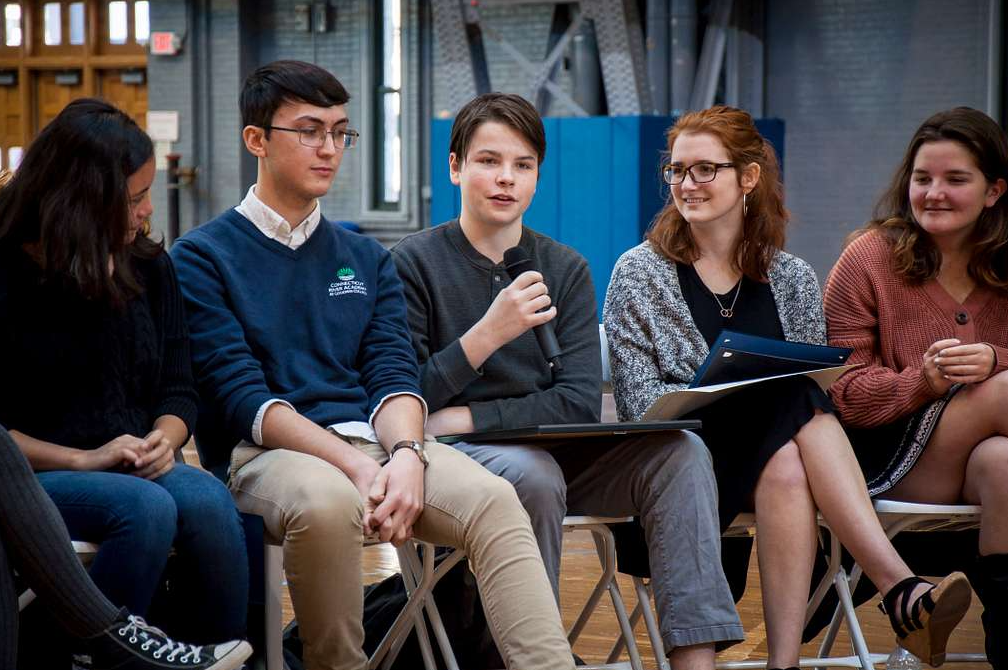It was June, the first day of my first semester in college. First-year students — plus a few stragglers that hadn’t taken English 101 — piled into a second-floor classroom smelling like books and hinting at the building's age.
Our professor was a legend. Intrigued by what he said, I stopped to digest his words.
That's why I was there: to learn how to think — and then to have the freedom to express those thoughts, right? After all, it was an English class, and not expressing ourselves was not part of the syllabus. Participation was mandatory.
But is that true for today's college kids? Do they enjoy the freedom of expression that many of us took for granted in our college years? Are they free to learn how to think, defend their thoughts, engage their ideas, and debate their fellow students without fear of retribution?
Unfortunately, no — and their professors are now facing the same throttling if they dare question the dominant narrative.
Matthew Wielicki, professor at the University of Alabama, is one of these individuals. "These are no longer places that embrace the freedom of exchanging ideas and will punish those that go against the narrative,” Wielicki said in a recent interview. “Although I had worked from an early age to earn a Ph.D. and become a professor, like my father, I feel the profession is no longer worthy of my efforts."
His sentiments made me wonder about the college students in my family. Are they able to freely express their thoughts? What happens in classrooms on their campuses?
When I asked these questions, one student reported that someone slammed a Bible to the floor in a class. Another said that freedom to express their ideas did not exist, unless, of course, they wanted to engage in a verbal duel. They did not.
"We had to stop today,” another student texted from class a while back. “A kid was triggered by something the teacher said. It took a while to get back to what we were supposed to study."
Another student said her school was chill, and that no one cared what another thought.
A final student aptly summed up the state of things on campus:
"They say everyone should have a voice and that college is all about inclusivity. Except, they shut down anything that doesn't agree with their agenda, and it makes those of us who hold different views feel less important."
These anecdotes underscore the data. A 2019 Knight Foundation survey of over 4,400 undergraduates found that 68% felt silenced because "their campus climate precludes students from expressing their true opinions because their classmates might find them offensive."
Too often parents foot the expensive bill for their silenced students. The average attendance cost for a student living on campus at a public, four-year, in-state institution is $25,707 per year, or $102,828 over four years.
Given this, it’s no surprise that college enrollment is in decline. The National Student Clearinghouse Research Center found that “7.8% fewer students are now participating in undergraduate programs, with public two-year schools and private for-profit four-year schools seeing the most significant declines.”
But there’s something else that should concern us: Too many students have no problem thwarting other people’s freedom of expression — even guests invited to speak on campus.
The Foundation for Individual Rights and Expression found that "more than three-in-five students (62%) said that students shouting down a speaker to prevent them from speaking on campus was acceptable to some degree, down from 66% in 2021, and one-in-five (20%) said this about using violence to stop a campus speech, down from 23% in 2021."
The good news is that the pendulum appears to have swung too far in one direction. The situation grew dire enough that 23 states passed legislation protecting campus free speech.
And there are finally schools pivoting away from censorship and suppression and back to freedom of expression. “The University of North Carolina at Chapel Hill will work to develop a School of Civic Life and Leadership,” The Carolina Journal recently reported, “to teach students in an age of culture and censorship how to develop the knowledge and skills needed to advance and support a healthy democracy.”
For the rest of us, if the atmosphere on college campuses is to change, we must be the ones to change it.
We must start with our kids, whether very young or young adults. They need to know how to think and express their thoughts and how to confidently disagree, even with people they hold in high esteem.
For our college kids, a friendly reminder: You have every right to speak up, even if it's terrifying. As my mother-in-law said, it's called higher education, not higher indoctrination.
Finally, we'd all do well to remember the truth of President Harry Truman's words: "When even one American — who has done nothing wrong — is forced by fear to shut his mind and close his mouth — then all Americans are in peril."
Amie Beth Shaver is a speaker, writer and media commentator. Her column appears every Wednesday in 1819 News. Shaver served on the Alabama GOP State Executive Committee, was a candidate for State House District 43 and spokeswoman for Allied Women.
The views and opinions expressed here are those of the author and do not necessarily reflect the policy or position of 1819 News. To comment, please send an email with your name and contact information to Commentary@1819News.com.










